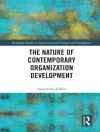Destinations rely on regional strategies to support and enhance the tourism product through regional partnerships and integration. Integrated tourism is defined as tourism that is explicitly linked to the economic, social, cultural, natural and human structures of the region in which it occurs. Integrated tourism has evolved to include numerous meanings and definitions, but generally includes a vertical business or industry approach.
The first of its kind, this book applies a more inclusive approach to integration by providing insight into inclusive regional development strategies that support both the needs of urban and rural areas whilst enhancing the tourist experience, supporting the positive impacts of tourism and mitigating the negative. Regional studies tend to portray either an urban or rural focus without acknowledging that often these spaces constitute joint governance structures, similar historical and cultural roots, and economic dependencies. Sustainable tourism promotes sourcing locally, such as using rural agricultural products in urban tourism experiences. Furthermore, innovative rural marketing strategies linking tourism heritage, attractions, food and drink trails, and artisans with urban visitors are emerging.
Including theoretical and applied research and international case studies, this will be a valuable resource to academics, students and practitioners working in tourism development and regional policy.
Giới thiệu về tác giả
Carol Kline is a Professor and the Director of the Hospitality and Tourism Management program at Appalachian State University. Her teaching and research interests have historically focused broadly on tourism sustainability, including topics such as foodie segmentation, craft beverages, agritourism, tourism entrepreneurship, and tourism in developing economies. However, she now gears her research solely on animals and she teaches a course called Animals, Tourism, & Sustainability. She is part of the Race, Ethnicity, and Social Equity in Tourism (RESET) initiative, which includes animals within the study of social equity. She is founder of Fanimal Inc., a non-profit that helps individuals find animal-focused careers.












